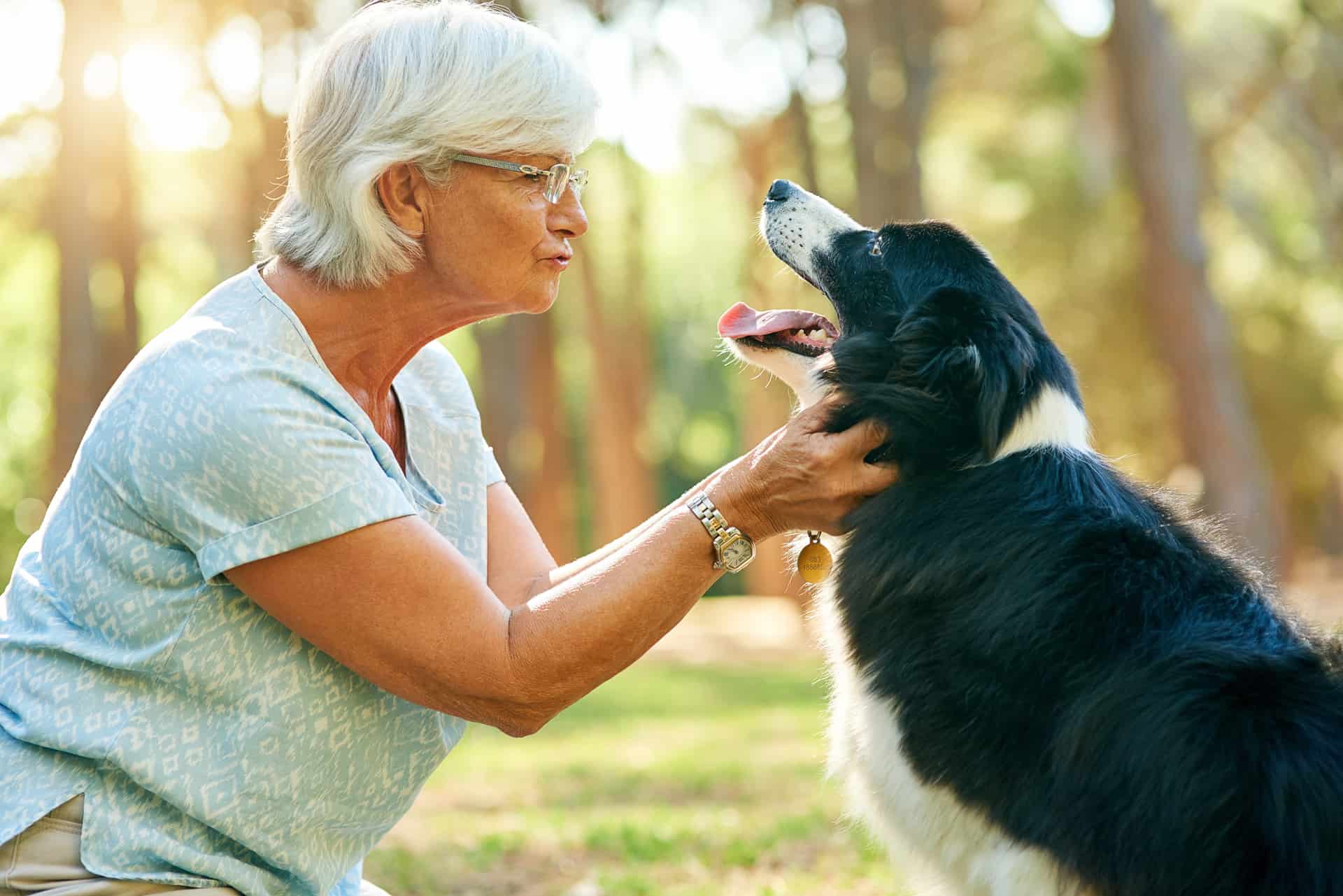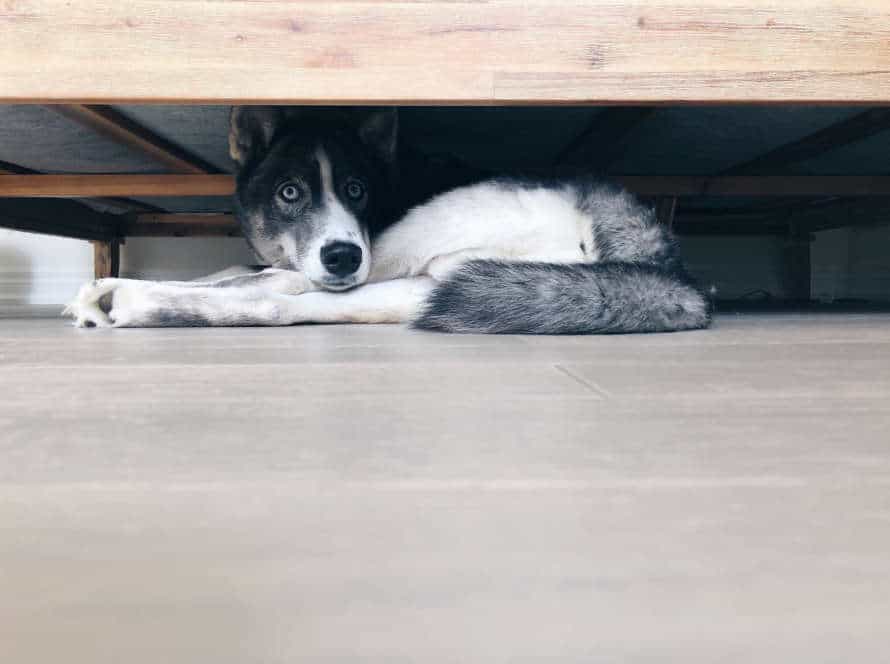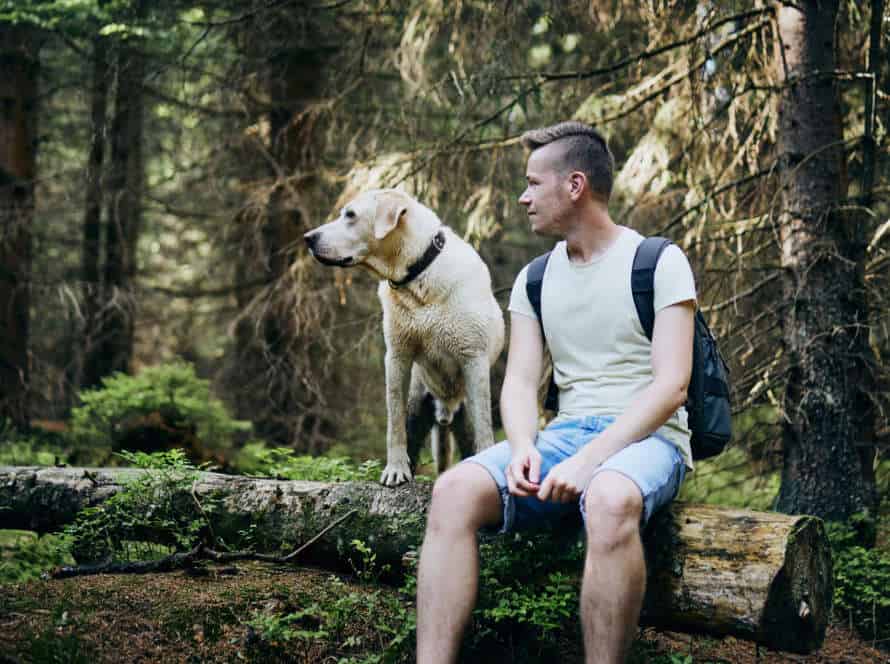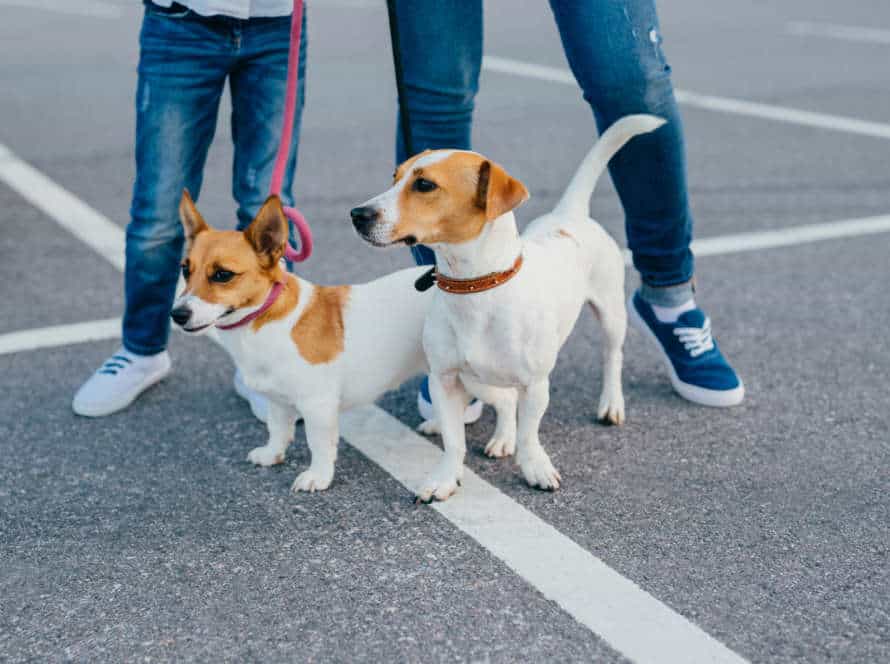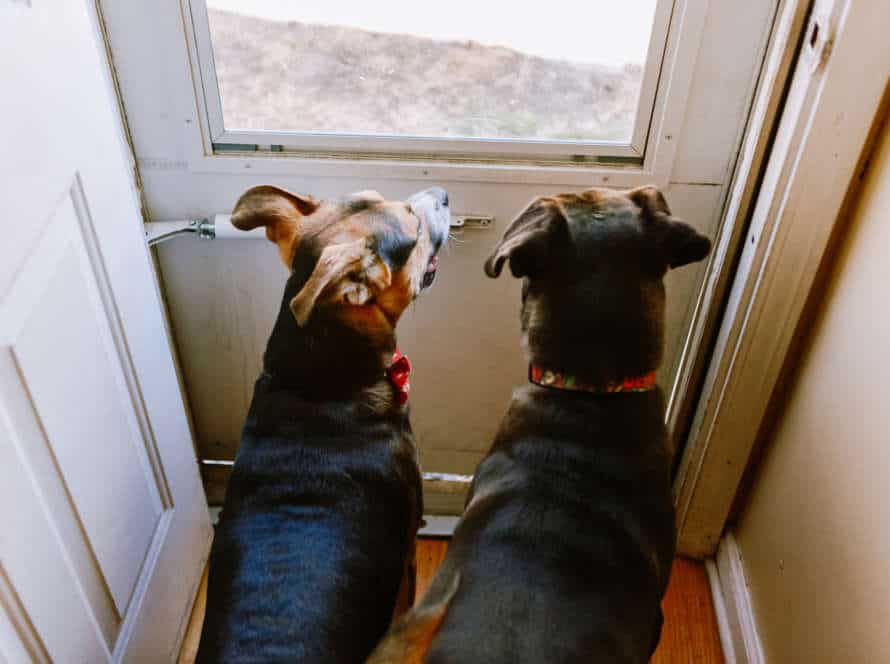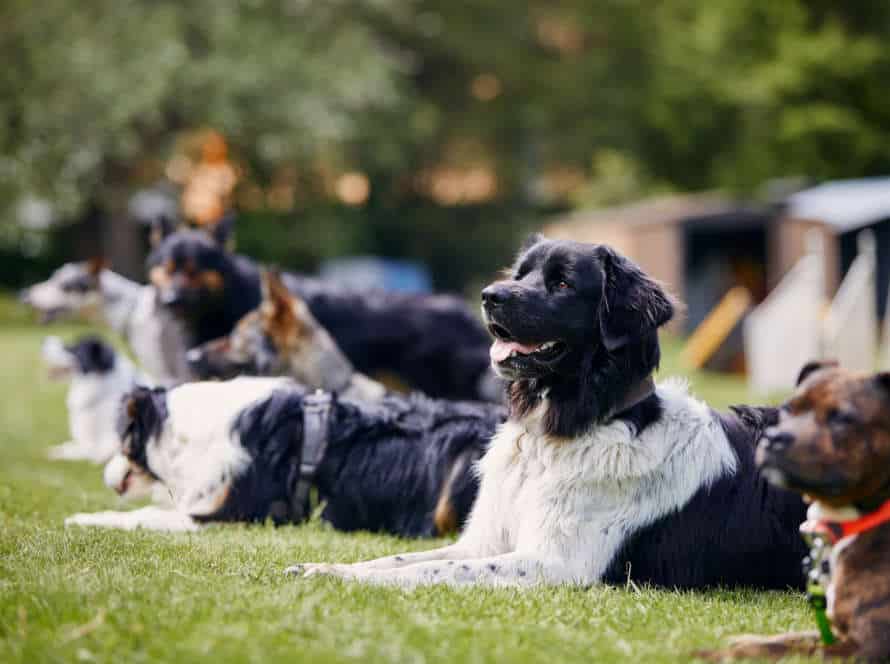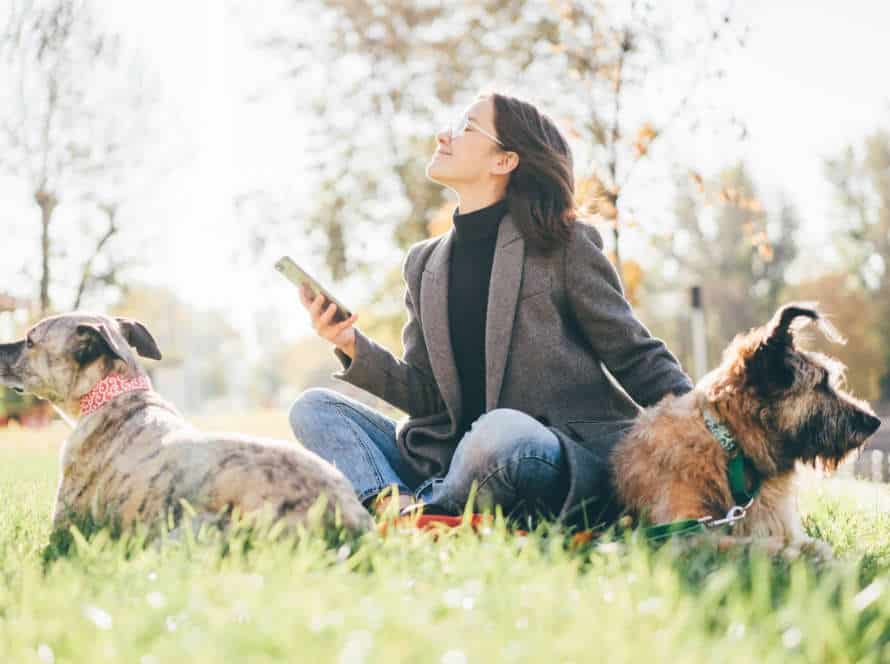Socializing Senior Dogs: Tips and Techniques
Socializing a senior pup can be tricky but it’s good for them and the owner. Here are some helpful tips:
- Start Slow: Depending on prior socializing, begin with brief & expected encounters with other doggos and folk.
- Watch Body Language: Notice your pup’s body language – if they’re comfy or stressed.
- Make Positive Experiences: Introduce your senior pup to friendly and chill pups and people.
- Encourage Good Behavior: Praise, treats, and love your pup for good behavior during socializing.
- Be Patient: Socializing a senior pup takes time and patience, but it’s worth it; better physical & mental health, plus more joy!
Understanding Senior Dogs’ Socializing Needs
Socializing mature pups can be tough. Especially if they’re scared or timid around humans. It’s crucial to understand what older doggos need when socializing. To ensure a safe and successful experience, here are some tips and tricks for socializing senior pooches:
Know your senior dog’s personality and behavior
As dogs age, their behavior and personality shift, like humans do. Knowing your aged pup’s temperament and behavior is the key to providing them with the best socializing experience in their later years.
Seniors canines may become less energetic and even have mobility issues, hearing or vision loss, or illnesses. Additionally, they can become more nervous or hostile. Taking these changes into account when socializing your elder pup is crucial.
Here are some tips for socializing senior dogs:
- Detect your dog’s body language and behavior to work out their socializing needs.
- Pick calm, laid-back environments with little noise and interruptions for socializing your elder pup.
- Keep away from forcing your dog to associate with other dogs or people if they’re not comfortable.
- Utilize positive reinforcement and reward-based training to help your senior dog feel more secure and self-assured in social situations.
- Be patient and understanding with your senior dog, and honor their physical and emotional boundaries.
Understand the benefits of socialization for senior dogs
Socialization is a must for senior dogs. As they age, these pooches can become isolated and less active. This can lead to boredom, depression, and physical issues. Here are the advantages of socializing senior dogs:
- Mental Stimulation: Connecting with others can help doggies keep their mind sharp.
- Exercise: Socializing regularly encourages exercise, which keeps senior dogs healthy and fit.
- Emotional Health: Interacting with others helps prevent sadness and frustration.
- Improved Behavior: Meeting more people and animals can reduce anxiety and aggression.
Understand your pup’s socializing needs. Take them to dog-friendly parks, plan playdates, and enroll them in senior dog socialization classes. Pro Tip: Too much excitement can be dangerous for senior dogs. Supervise social sessions and let them rest.
Know the typical socialization issues for senior dogs
Senior dogs have socialization issues that can hurt their physical and mental health. Here are some typical ones:
- Decreasing Physical Activity: As dogs age, their activity may decrease, so they can lose muscle and have joint pain. This affects their socializing.
- Cognitive Decline: Senior dogs may get dementia, which alters their socializing. They may become aggressive, befuddled, or not know familiar people/dogs.
- Loss of Sight/Hearing: Aging dogs may see/hear less, which impacts their socializing.
- Daily Routine Change: Senior dogs may have health issues that change their routine, which also alters socializing.
To help with these issues, senior dog owners should give them chances to socialize with other people/dogs. But, keep an eye on their body language. Make sure they are comfortable and okay.
Techniques for Socializing Senior Dogs
Socializing senior dogs can be tough. However, there are ways to introduce a senior pup to new faces and places. Let’s look at techniques to help make the process simpler. We’ll discuss the various techniques you can use to socialize senior canines.
Gradual Exposure Technique to Introduce New Dogs to Senior Dogs
Introducing a new pup to your senior dogs can be tricky. But, with the gradual exposure technique, you can make it stress-free for both! Here’s how:
- Begin with scent swapping. Exchange blankets & toys so they get used to each other’s smell.
- Controlled meetings. Meet in a neutral area, like a park or a friend’s backyard. Keep both on leashes & let them sniff each other while you observe.
- Supervised time. Once they’re comfortable, let them spend time together in a supervised area. Reward good behavior & intervene if needed.
- Increase time. Gradually increase the time they spend together.
By following these steps, you can help your seniors become comfortable with the new pup & make the transition smoother.
Positive Reinforcement Training Techniques for Senior Dogs
Positive reinforcement training can be a great help for socializing older dogs. Instead of punishing bad behavior, it rewards the good ones; resulting in a content pooch.
Here’s a few tips for socializing your senior dog with positive reinforcement:
- Introduce your pup to new people and pets slowly. Offer treats and praise for good behaviour.
- Utilize verbal cues such as “good boy” or “good girl”.
- Use a clicker to indicate when your senior dog does something correctly.
- Stay calm and don’t scold.
- Step by step, increase your pup’s exposure to new situations, people and other animals. Always focus on rewarding good behaviour.
Senior dogs can still learn and be happy with the right kind of training. It gives them a fulfilling life.
Incorporating Play Time for Socializing Senior Dogs
Older dogs can become less social as they age. But, playtime can help! Here’s how:
- Take them to new places and introduce them to new people and pups.
- Get them to the dog park to interact & play with other doggos.
- Praise & reward them whenever they socialize positively.
- Set aside time for playing with your senior, keeping their health in mind.
- Consider getting a companion pup for your senior if they are alone.
These tips can help your senior pup improve their social skills, leading to a happier and healthier life. Vet consultation is important before introducing any new activities, especially for senior dogs.
Socializing Senior Dogs with Humans
Socializing senior dogs with humans? That’s awesome! It can be tricky though, due to their anxiety and fear. But with a bit of patience, you can help your pup adjust. Here are some tips and techniques to get the job done!
- First, be patient and relaxed.
- Secondly, start off slow – try introducing new people very gradually.
- Lastly, use positive reinforcement to reward good behavior.
Have fun helping your senior dog socialize with humans!
Basic Obedience Training Techniques for Senior Dogs
It’s important to give senior dogs basic obedience training to keep them active and reduce anxiety. Socializing is key, so here are some tips to help!
- Walk in quieter places to avoid overwhelming them.
- Introduce them to people gradually, in a controlled setting.
- Short and frequent training sessions help maintain their attention.
- Be sure to use treats and praise as positive reinforcement.
- Group classes or hiring a trainer can help too.
Remember, patience and consistency are key for training senior dogs. With the right techniques and motivation, your senior dog can socialize and learn new behaviors!
Encouraging Human Interaction at Home and Outside the Home
Interacting with humans is key for socializing senior dogs. This helps them stay mentally and physically fit. Here are tips to socialize your senior pup:
- Start off small, then slowly increase exposure to new people and places.
- Reward good behavior with treats or compliments.
- Play fetch or hide-and-seek for fun activities.
- Take part in group events with other dogs and humans.
- Take your senior to training classes for reinforcement.
Be patient when socializing. It may take longer for older dogs to adjust to new people and places.
Best Practices for Socializing Senior Dogs with Children and Infants
Introducing senior dogs to children is vital for their safety and everyone’s well-being. Here are some tips to consider:
- Let the dog sniff and explore the child, with your hand on them to ensure comfort.
- Educate the child on how to approach and interact with the pooch. Avoid loud noises, sudden movements, and tugging at their tail or ears.
- Provide a safe space for the pup to go to if they feel overwhelmed. It could be a room, crate, or bed.
- Give treats and praise to encourage good behavior between the dog and child.
- Don’t force it if the dog isn’t comfortable around kids. Seek help if needed.
By following these steps, you can make sure the senior dog and children experience a positive and secure socialization.
Dealing with Socialization Challenges for Senior Dogs
Socializing can be a struggle for elderly pooches, especially those who have lived alone or had limited human interaction. Being patient and understanding while teaching an old dog is essential. They may take more time to adjust to new people, places and activities. This section will give some ideas and methods to socialize mature dogs, and will alert you to any challenges you may face.
Separation Anxiety in Senior Dogs and its Effect on Socialization
Senior dogs can suffer from separation anxiety, which prevents them from socializing with other canines and humans. This can have a bad effect on their mental and physical wellbeing. To help them, here are some tips:
- Begin with small sessions. Take your pup on short trips and introduce them to one new thing at a time.
- Encourage with rewards. Treats, toys and praise your dog for behaving well around strangers and other dogs.
- Comfort is key. Bring your dog’s bed and favourite toy to keep them feeling secure.
- Talk to your vet. Ask about natural calming aids or medication to reduce anxiety.
- Professional help. If the separation anxiety persists, consult a dog trainer or behaviorist to create a tailored plan.
Pro tip: When it comes to socializing senior dogs, patience is necessary. Take it step by step and appreciate every success, no matter how small.
Common Socialization Challenges for Senior Dogs
Senior pooches often face exclusive socialization issues. Anxiety and fear in previously confident dogs is one of them. Here are a few tips to deal with ’em:
- Be understanding and patient with your pup. Aging brings physiological changes that can impact behaviour and mood.
- Introduce new experiences and situations gradually. Quick changes can be too much for senior dogs, causing anxiety.
- Positive reinforcement techniques, like treats and praise, can help soothe fear and anxiety.
- Consult with a pro trainer or vet for support and guidance in dealing with socialization challenges in senior dogs.
Techniques for Dealing with Aggressive Behavior in Senior Dogs during Socialization
Senior pooches, just like us humans, may show signs of aggressive behavior during socializing. Here are some tips to keep your senior pup’s aggression in check:
- Begin small: Get your senior dog acquainted with one new canine at once and in a controlled setting.
- Reward desirable conduct: Every time your senior dog acts well, give them treats and praises.
- Train obedience: Ensure that your senior pup knows basic obedience commands such as “come,” “sit,” and “stay.”
- Consistency is the key: Make sure to socialize your senior furball with other dogs regularly, to help them get used to their presence.
- Seek professional help: If your senior pup displays extreme aggression or fear, reach out to a veterinarian or a professional dog trainer for assistance.
These techniques will help you to make sure your senior pup has a positive and happy socializing experience!
Conclusion and Tips for Socializing Senior Dogs
Pondering on adopting a senior pup? Socializing them is a must. It’ll fortify the connection between you and the pup. Additionally, it helps the pup to be familiar with the people and places around. Here, we are discussing techniques and tips for socializing senior pooches.
Best Practices for Socializing Senior Dogs
Socializing senior pooches is essential for their happiness and quality of life. Here are some top tips:
- Gradually introduce your aged pup to new people, dogs, and places with positive reinforcement.
- Give your elderly dog plenty of rests and be aware of them not being too stimulated or overwhelmed.
- Employ treats and toys to keep your senior pup engaged and attentive.
- Take into account your senior dog’s mood and physical barriers when socializing them.
- If they don’t want to, don’t force your aged pup to mingle with other people or dogs.
- Bear in mind that socializing your senior dog is a long-term process that needs patience, consistency, and adaptability.
Pro Tip: Aged doggos may need more time to acclimate to new environments and social scenarios. Be kind and understanding, and always prioritize your pup’s comfort and safety.
Tips for Increased Socialization Success
Socializing senior pooches can be tricky. But, with patience and the right techniques, you can enhance your success! Here are some tips:
- Start slow: Gradually introduce your senior dog to new people/dogs in a controlled environment.
- Positive reinforcement: Reward good behavior with treats, love, and compliments.
- Patience is key: Older dogs take longer to adjust to new situations/people, so take your time.
- Monitor signs of stress/aggression: Watch out for body language cues that show your pup is unhappy or anxious and address them.
- Seek professional help: If your dog’s socialization issues are serious or causing harm, consult a pro trainer/behaviorist.
Pro Tip: Remember every pup is special, so be flexible and tweak your approach to suit your senior dog’s personality and needs. With patience, positive reinforcement, and consistency, you can help your senior dog lead a happy life.
Helpful Resources for Socializing Senior Dogs
Socializing your senior pup is key for their wellbeing. To get started, try these tips:
- Find a pro dog trainer, experienced in socializing seniors.
- Put your pup in doggie daycare, to mingle with other dogs in a safe setting.
- Take ’em to a dog park for short playtimes with new pups and people.
- Use treats to tempt them to hang with others.
- Be patient and consistent, socializing seniors takes time.
Keep an eye on them during these sessions for safety. With the right resources and techniques, your furry pal can enjoy their golden years!
Frequently Asked Questions
Q: How can I socialize my senior dog?
A: Socializing your senior dog starts with exposing them to different people, pets, and environments. Consider enrolling your dog in a training class or taking them on regular outings to meet other dogs and people. Be patient and go at your dog’s pace to avoid overwhelming them.
Q: Is it too late to socialize my senior dog?
A: It is never too late to socialize your senior dog. While they may be set in their ways, they can still benefit from positive interactions with new people and pets. Start slowly and be patient, as it may take some time for your senior dog to become comfortable in new situations.
Q: How can I introduce my senior dog to other dogs?
A: Introducing your senior dog to other dogs should be done slowly and in a controlled environment. Avoid overcrowded places and try introducing your dog to other dogs one-on-one. Keep the dogs on a leash and watch for signs of aggression or discomfort. With patience and positive reinforcement, your senior dog can learn to socialize with other dogs.
Q: What if my senior dog has never been socialized?
A: If your senior dog has never been socialized, it’s important to go slow and be patient. Start by introducing your dog to new people and pets in a controlled environment. Consider enrolling your dog in a training class or seek the help of a professional dog trainer. With time, patience, and consistency, your senior dog can learn to socialize and develop positive behaviors.
Q: What are the benefits of socializing my senior dog?
A: Socializing your senior dog can have many benefits, including reducing anxiety and stress, improving their behavior around people and other pets, and providing them with mental and physical stimulation. It can also help your dog adjust to new environments, such as when traveling or moving to a new home.
Q: What should I do if my senior dog shows signs of aggression?
A: If your senior dog shows signs of aggression such as growling or biting, it’s important to seek the help of a professional dog trainer or behaviorist. They can help to identify the cause of the aggression and develop a plan to help your dog develop positive behaviors.

